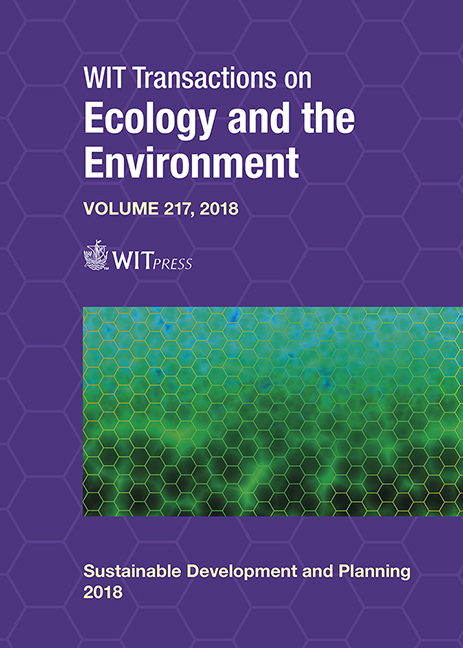COMPARING CITIES OF THE WORLD ACCORDING TO THEIR FOOD SECURITY RISKS AND OPPORTUNITIES
Price
Free (open access)
Transaction
Volume
217
Pages
10
Page Range
953 - 962
Published
2018
Size
449 kb
Paper DOI
10.2495/SDP180801
Copyright
WIT Press
Author(s)
WIL H.G.J. HENNEN, VASCO DIOGO, NICO B.P. POLMAN, MARIJKE W.C. DIJKSHOORN-DEKKER
Abstract
Due to the combined effect of climate change, expected population growth and increased concentration of population in cities and towns, food insecurity in urban areas is becoming of increasing concern and is regarded as one of the most prominent development challenges for the 21st century. Cities differ with respect to their specific food security risks and opportunities of local food supply to meet the increasing demand for food. The tool “Global Metropolitan Detector” has been developed to compare cities of the world based on different dimensions of food security, particularly availability, accessibility, and affordability of food, risk of floods and climate change, and healthy diets. Worldwide publicly available datasets, e.g. from FAOSTAT, EarthStat and WorldClim, are used. These are separately converted (aggregated/disaggregated) to a homogenous 5 arc-minute grid and combined in the tool to calculate (by weighted average) and compare the demand and local supply of food, including the required area of land to meet the city-specific consumption needs (measured in “Food Metres”). The purpose is to benchmark 850 cities based on several aspects related to food security. The resulting benchmark of cities and their indicator values can be visualised in maps showing their position with respect to food security in general, or investigate particular aspects in more detail, e.g. cities having low/high flood risks or cities that are better able to meet the demand of (fresh) vegetables and fruit from local producers. The maps can support policymakers to identify causes and locations of food insecurity, and the indicative results – based on limited available worldwide data – can serve as an inducement for further investigation with more detailed data from cities.
Keywords
metropolitan, benchmarking, cities, urban, food secure, food metres, FAO, GIS, climate





